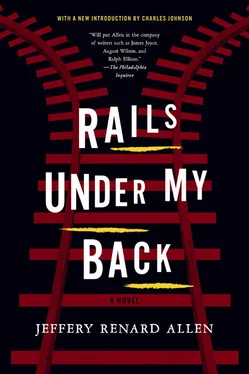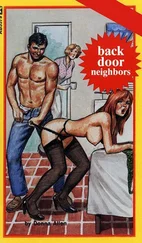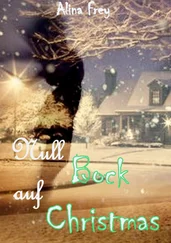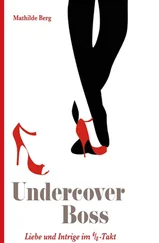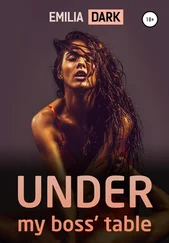And everybody knew that John liked to lay with woman, that itch he had to scratch. Mind yo business, Gracie said.
Marriage did not change John. He brought his business to Gracie’s doorstep and invited it inside. What did Gracie do? Let it happen. Right under her nose (how could she not smell the stink?), right in her home. Mind yo business. Stay outa mine.
Sometimes Sheila would watch Gracie pouring out tea, swinging her leg beneath the kitchen table, lifting a spoon to her mouth, and hated her for these things, murderous actions. Then, all of their years together would rush at Sheila. Five, ten, fifteen, twenty, all hid? all hid? You and Gracie and R.L. and Sam and Dave and Nap playing Catch Me and hide-and-seek in the thirteen pecan tree clusters that surrounded Daddy Larry’s house and barn. Five, ten, fifteen, twenty, all hid? all hid? The boiling hatred would simmer down to pity. Gracie, Sheila would begin, don’t you know—
It’s my business, Gracie would say. He mine.
After Porsha was born, John would strap the baby in his Eldorado and take her red-speeding through the streets. Sheila told with her eyes what her mouth wouldn’t speak. John bought a red wagon and pulled Porsha everywhere in it. Same way he used to wheel Cookie (Jack’s product) around in the park when he courted Gracie. Her body was liquid in the wheelchair. Her muscles moved under your fingers like water-filled balloons. Lucifer would return from work each day with some gift for his daughter, usually something cheap, depending on how far his little money would carry him. John offered candy, cookies, and pop. Gracie watched it all.
Babies grow fast. Before you knew it, Porsha was starting school, learning how to read and write and add and subtract, figuring out this and that. John would light a cigarette and begin to speak, leaning his elbow on his knees. What you learn in school today? He watched his niece with his brown eyes, dry, ready to catch sun and flame.
How to think, Porsha would say.
She was all in your business, surprise you, standing straight and staring, like a paper doll in a pop-up book. Why the door closed? What yall doing? Why you on top of her like that?
Gracie and John moved to the two-flat on Seventy-second and May Street (Englewood) with a false fireplace — no chimney, all cement. Then, when Jesus was seven or so, John bought the house on Liberty Island with a real hearth where a fire could burn. Gracie put Cookie’s photograph — remember the day that you, Beulah, and Gracie bathed, dressed, and groomed Cookie and took her to the photographer — on the mantel above it: the dead muscles of Cookie’s face and the loose eyes that looked in two directions at once; a white-and-pink bow; a pink dress with white collar and black belt; black patent-leather shoes; Cookie against a background of white cloud, its imprint surrounding her body, like a gem in a box. She kept a six-pack of Big Bear malt liquor in her new refrigerator, drinking half the six days of the working week — yes, that was in those days when both you and Gracie worked on Saturdays — and drinking the rest on Sunday, finishing the last can late in the evening while her favorite show popped and buzzed on the TV screen. Stopped drinking the beer after John talked bout her so, complained how it stank so on her breath, how her gut started to swell like the toothpick-skinny drunks on Church Street, like the ever-present slow-moving Dallas with flat tires round his belly.
THE THOUGHT OF GRACIE brought Sheila back to the Oriental woman’s face. Sheila caught the woman’s eyes. The woman did not turn away. The eyes in the reflected face continued to look at her. Sheila felt transparent under the gaze. I forgot to comb my hair? Didn’t wash my face? Got a booger in my nose? My legs ashy?
The train arrived with a smell of hot metal. Not the one she needed. Framed in the windows, the frozen-forward faces of passengers. But they different in New York, Lucifer says. Here, the seats face forward overlooking the tracks — as if you were the conductor, you think — but there, you face the other passengers, keep yo eyes to yoself. Yes, you think, looking but not seeing, eyes turned away, curving and swerving with the tracks. The conductor shouted, STANDING PASSENGERS, PLEASE DO NOT LEAN ON THE DOORS. Cause you might fall out of the doors, like teeth spilling from a mouth. The train drew off.
Roughnecks rolled down the platform steps. She clutched her purse strap tight, kept her hand firm on the skillet inside her purse. Her previous weapon, an open knife, Hatch’s old Boy Scout blade (cause switchblades illegal) rusty to the touch, though it still cut; carried it till that day she left it on the sink and lost it to the drain; sides, knives are slow to the cut. Used to carry a pistol, wrapped up in a white footy — really did look like a foot, cloth stretched tight — til it fell out of her purse, stomped against the kitchen linoleum and blasted a hole in the wall, inches from Hatch’s stomach. Tried Mace; one day on the bus, it released in her purse and nearly suffocated the passengers. So she settled on an iron skillet no bigger than her palm. Purse snatchers. Cutthroats. Rapists. Junkies. The mayor was even talkin bout puttin video cameras on every street corner. Fine with her. Sometimes she wished those doors would open and spill — spit? — out some of these bad niggas from the foul-and-rotten mouths of projects in Central, Eddyland, Crownpin, and South Lincoln. Kids nowadays got a patent on devil. They walk loud and talk loud and drive loud cars that zoom by in the silence of night, blaring music, shoving you out of sleep and rearranging the house. Most nights, Sheila slept through the noise, but Lucifer— His reflection in the glass of her eyes is the transparent mask of a man. The runaway world. The sharpest eyes can’t see the arrows of death, Father Tower used to say. Bad intentions cannot travel so far as good.
The younguns in this dashing city, what do they know? Where have they been? Their eyes see nothing but their own nightmares. Father Tower used to say, There are plenty fountains of knowledge beside the roadside. It’s up to us to drink. Perhaps, if these young hoodlums could taste the cleansing sweat of labor. The way of work and knowledge are one and the same, idle body, idle mind. The devil works overtime.
Somebody got to witness for the Lord. I’m too old. You prefer the privacy of your own Bible, though your fingers almost too tired to flip through its pages. Tired of left-handed fellowship, you left the church a few years — two? — after Father Tower’s death, after Cotton Rivers climbed to the pinnacle of Mount Zion’s rock, setting up a pulpit at either end of the stage, and he and that Cleveland Sparrow exchanging sermons, extending a long length of white Scripture between them, branched birds sharing a single worm. Said, somebody got to witness for the Lord.
Here I am, Mother Sister. Years of seeing, Sheila knew her well. A fat yellow woman, a lump of butter, spilling into two pink house shoes. Hair pulled back into a long ponytail, stretching the lines of her face. You may not know it, but each of you is my spiritual baby. I bring words of Scripture for nourishment. The milk of salvation. I am here to lift you up so that your short arms can reach the teat of your redemption. For the Lord Christ said, As Moses lifted up the serpent in the wilderness to save the backslidden Israelites, so must the Son of God be lifted up, so that whosoever will believe in him should not perish but have everlasting Life.
My children, do you want everlasting life? It is written in the Scriptures that the Lord Christ said, Lift up your eyes for the fields are white and ready to harvest, so pray to the Lord of the Harvest to send forth laborers into the field. The laborers are paid good wages. Better than the white man’s wages downtown.
Читать дальше
